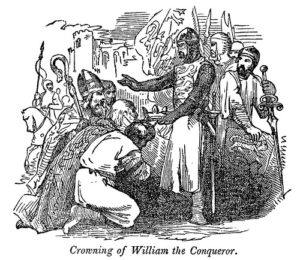 I was an early convert to plain language — or plain English as it was called then — when it began to make headway in the 1970s. From the start, I was convinced that plain language is a just cause: right in its strong criticisms of traditional legal style, right in its call for reform, and right in its general prescriptions. Of course, my understanding of it has evolved and broadened over the years, but it remains for me a passion — a life’s work. And the work will need to go on long after I’ve gone on. A reformer, someone once told me, needs a geologist’s sense of time. Read More
I was an early convert to plain language — or plain English as it was called then — when it began to make headway in the 1970s. From the start, I was convinced that plain language is a just cause: right in its strong criticisms of traditional legal style, right in its call for reform, and right in its general prescriptions. Of course, my understanding of it has evolved and broadened over the years, but it remains for me a passion — a life’s work. And the work will need to go on long after I’ve gone on. A reformer, someone once told me, needs a geologist’s sense of time. Read More
 In response to my May 1, 2013 column Simple Legal Writing Isn’t Baby-Talk, I received a comment on LinkedIn from Lyn Boxall, a management consultant who works in Singapore. Before doing consulting work, she was an in-house lawyer for Visa International and GE Capital Australia.
In response to my May 1, 2013 column Simple Legal Writing Isn’t Baby-Talk, I received a comment on LinkedIn from Lyn Boxall, a management consultant who works in Singapore. Before doing consulting work, she was an in-house lawyer for Visa International and GE Capital Australia.
Ms. Boxall recounts her experience with the plain-language movement in Asia and Australia. She points out that, compared to some other countries, the plain-language movement in the United States is fairly new. She also has lessons for those people who still believe that plain language is a strictly academic pursuit. In her experience,
- Plain-language consumer agreements can result in fewer consumer disputes.
- In Asia, if a party drafts a contract containing dense legalese, the other party will consider it a sign of distrust.
With her permission, I’ve reproduced her comment below (with minor editing and formatting to conform it to house style). If you do business in the Asia Pacific region, or are asked by a client to negotiate and draft contracts with another party located there, it would behoove you to read her entire comment: Read More
 At the end of his career, Thomas Jefferson reflected on the style of early American statutes:
At the end of his career, Thomas Jefferson reflected on the style of early American statutes:
[I]t would be useful . . . to reform the style of [statutes] which, from their verbosity, their endless tautologies, . . . and their multiplied efforts at certainty, by saids and aforesaids, by ors and by ands, to make them more plain, do really render them more perplexed and incomprehensible, not only to common readers, but to the lawyers themselves.
We might excuse the early American drafters’ poor legal writing; after all, they’d inherited a legal language that was hardly a model of clarity. But what excuse remains for the modern defenders of the traditional style of legal writing? Despite decades of studies showing otherwise, the old guard still claims that it’s not possible to make legal writing comprehensible to ordinary people without sacrificing precision.
The traditional style of legal writing is an accident of history, which the legal profession has perpetuated through inertia and self-interest for one-thousand years. If the bar is serious about empowering citizens by making the law more accessible, it must demand without exception plain English as its legal language. Our time, perhaps more than any other, demands it. Read More

Recent Comments